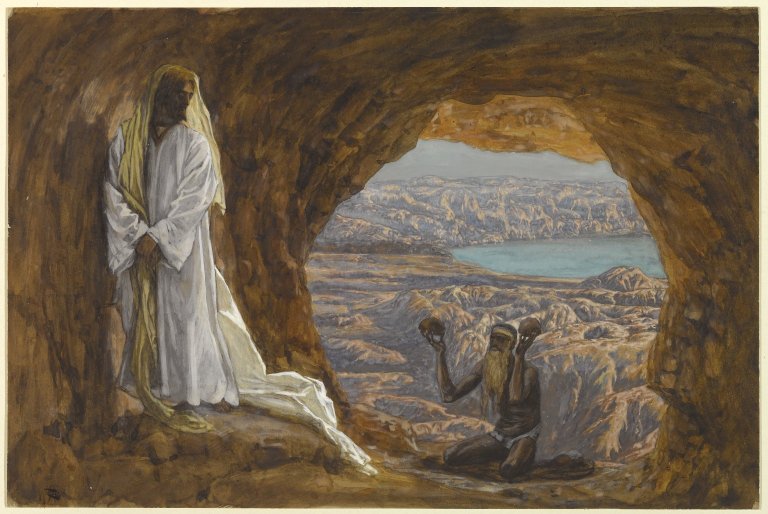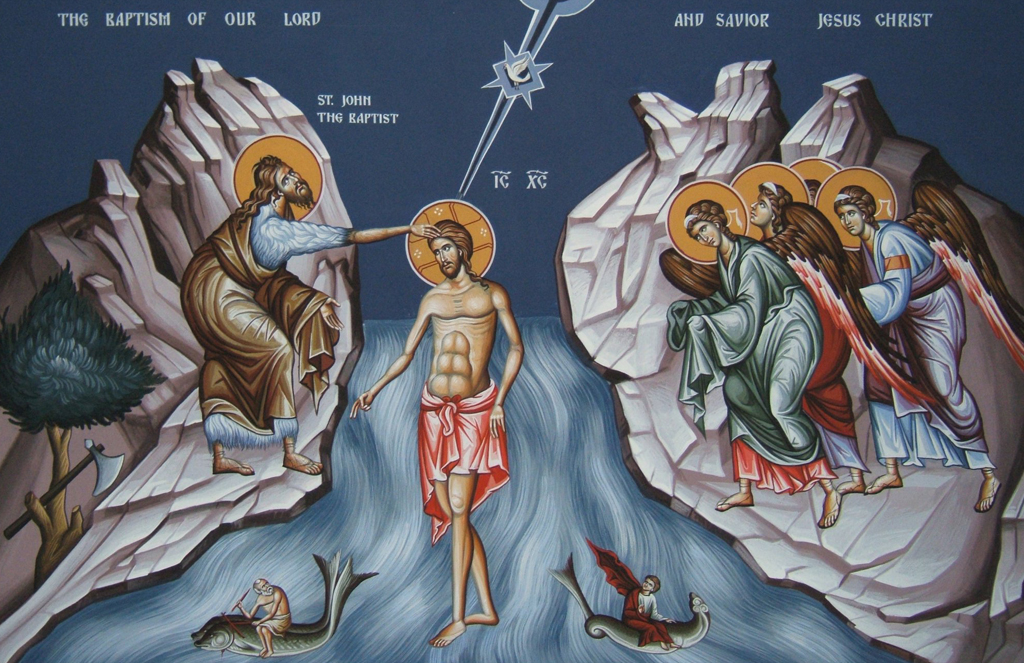Jijo Kandamkulathy, CMF
Claretian Publications, Macau
Mt 4:1-11
1ST SUNDAY OF LENT – YEAR A
The passage of the temptations of Christ is a theological text. Using biblical language and imagery, the author conveys that the whole life of Jesus was a dramatic confrontation between him and the tempter.
The most dramatic of his temptations was on the cross when he cried out to the Father: “My God, my God, why have you deserted me?” (Mk 15:34). These words might sound blasphemous to those who do not understand that at that time, Jesus was praying. He was reciting Psalm 22. As he had done throughout his life, even during the agony he hearkened back to the Scriptures.
Jesus’ answers to the tempter refer to three events of the Exodus: the murmurings of the people for the lack of food and the gift of the manna (Ex 16), the protests for the lack of water (Ex 17), the idolatry represented by the golden calf (Ex 32). Jesus, therefore, relives the history of his people. He is subject to the same temptations and overcomes them.
The first: “Order these stones to turn into bread” (vv. 1-4).
In the desert, the Lord said to Moses: “Now I am going to rain down bread from heaven for you…. ‘Each one gathers as much as he could eat. Let no one leave any of it till morning.’ But they did not listen and some of them left it till morning. It bred worms and became foul” (Ex 16:4, 19-20).
It is a typical case to teach his people to control greed. God wanted to rescue them from the frenzy of possession and the desire to accumulate food. He did not succeed: the seduction of the goods of this world is almost unstoppable. It is difficult to settle for the “daily bread” to allow everyone to have enough to live on.
Jesus was tempted to use his ability to produce “bread” for himself. He reacted by referring to Scripture: “One does not live on bread alone but also from everything that comes from the mouth of God” (Dt 8:3).
The only one who considers his life in the light of the word of God is capable of giving the right value to the reality of this world. The goods of this world are not to be despised, destroyed, rejected, but not considered idols. They are fleeting and transient creatures, not absolute reality.
The selfish use of accumulated wealth for oneself, living by the work of others, and squandering in luxury and superfluity, while others lack the necessary things, are behaviors dictated by the evil one.
The second temptation: “Throw yourself down from the pinnacle of the temple” (vv. 5-7). The diabolical proposal is even based on the Bible: “It is written…” says the tempter.
The evil presents itself with an attractive face, assuming a prayerful stance, making use of the same word of God—maybe crippled and so foolishly interpreted—to lead astray.
The ultimate goal of evil is not to cause some moral subsidence, fragility, weakness, but to undermine the relationship with God. This is achieved when in people’s mind doubt creeps in that the Lord does not keep his promises, misses on his word, does not ensure his protection but at crucial moments abandons those who trusted him.
The need “to demand proofs” arises from this doubt. In the desert, the people of Israel, exhausted by thirst, succumbed to this temptation, and exclaimed: “Is the Lord among us or not?” (Ex 17:7). It provoked God by saying: If he is on our side, if he really accompanies us with his love, let him manifest himself by giving us a sign, perform a miracle! Israel challenged God to see if he really loved her.
Even Jesus was subjected to this test but did not budge. Unlike Israel, even in the most dramatic moments of his life, he refused to ask the Father for proof of his love. We give in to this temptation every time we demand from God signs for our benefits.
The third temptation: “All this I will give you if you kneel down and worship me” (vv. 8-11). It is the temptation of power, of domination over others. The choice is between to master and to serve, to compete and to be supportive. One can also use one’s abilities and talents to humiliate those who are less gifted. Those who have power and are rich can serve the poorest and most disadvantaged but can also lord it over them. The greed for power is so overwhelming that even those who are poor are tempted to overpower those weaker than them. Authority is a charism and is God’s gift to the community so that everyone can be in one’s place and feel accomplished. Power instead is evil, even if it is exercised in the name of God. Where dominion is exercised over persons, where people struggle to prevail over others, where someone is forced to kneel or bow down in front of another, the logic of evil is at work there.
Jesus did not lack the talent to emerge, to climb all the steps of the religious and political power. He was intelligent, lucid, courageous, and charmed the crowds. He certainly would have been successful… but on one condition, that he “worshiped Satan”—to comply with the principles of this world, to compete, to resort to the use of force and oppression, to ally with the powerful, and to use their methods. He made the opposite choice: he made himself a servant.
The people of Israel in the desert got tired of their God and worshiped a golden calf: the material idol, the work of human hands. Jesus never bowed down before any idol. He was not seduced by political power, money, the use of weapons, friendship with the great of this world, and proposals of success and glory. He always listened only to the word of the Father. The voice that excites in us the thirst for power that invites to promote the cult of personality is insistent and insidious.
The latter part of the Gospel is an invitation to reconsider our lives and make us aware that privileges are not offered by God but by the tempter. To his children, the Father of Jesus presents only… services humbly rendered to the sisters and brothers.
Indebted to Fr. Armellini SCJ for the textual analysis.
(Image: Caption – Jesus Tempted in the Wilderness by James Tissot. Brooklyn Museum. Public Domain/Wikipedia)


 Follow
Follow


